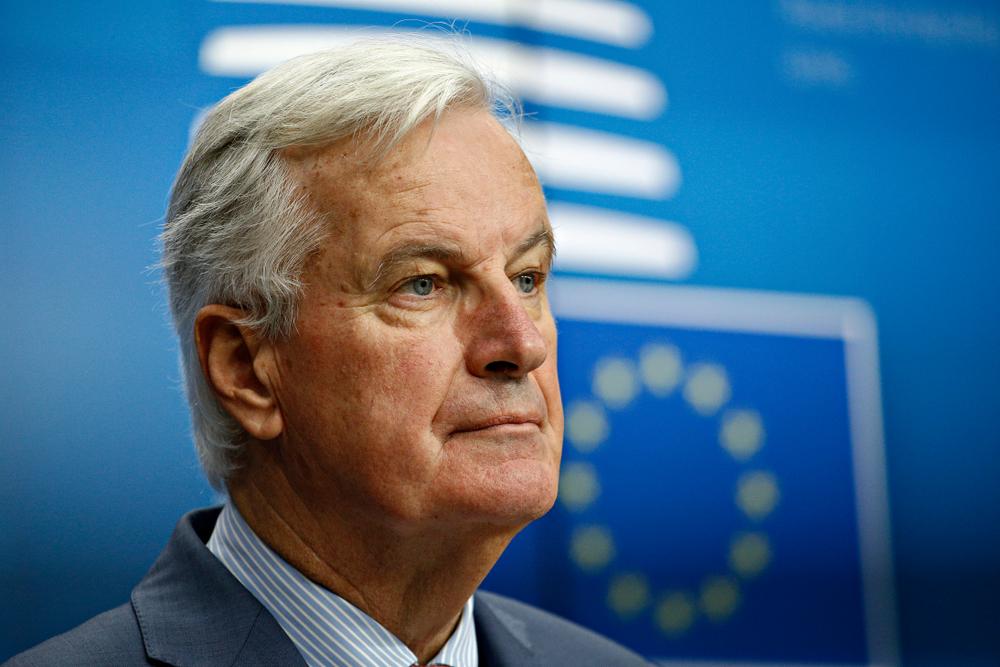Chief EU negotiator Michel Barnier has said that a Brexit deal could still be reached between the EU and the UK. He said that the proposals currently on offer were not good enough, but that he was ready for Boris Johnson’s good intentions to turn into a legal document before the EU summit, which begins on Thursday.
Speaking to Bloomberg, Barnier said, “Not all that U.K. has been saying in the last days is totally unacceptable.”
“They have moved in our direction on key points and that’s why I think we still can make significant progress today.”
Speaking on the prospect of a deal, he said, “Because even if an agreement will be difficult, more and more difficult to be frank, it is still possible this week.”
He continued, “Reaching an agreement is still possible. Obviously any agreement must work for everyone, the whole of the United Kingdom and the whole of the European Union.
“Let me add also that it is high time to turn good intentions into a legal text.”
I have just debriefed EU27 Ministers in Luxembourg. 🇪🇺 unity remains strong. We want an agreement that works for everybody: the whole #UK & whole #EU.
On route back to Brussels to take stock w/ my colleagues.
Talks are difficult but I believe an agreement is still possible. pic.twitter.com/FxQHCajg5b
— Michel Barnier (@MichelBarnier) October 15, 2019
Brexit Secretary Stephen Barclay echoed the optimistic sentiment, stating a deal was still,
“very possible”.
He said, “The talks are ongoing. We need to give them space to proceed. But detailed conversations are under way and a deal is still very possible.”
Meanwhile, Secretary of State for Scotland, Alistair Jack, foresees Boris Johnson pushing for a No-Deal scenario at the end of the month, which he believes will be supported by some sympathetic EU27 leaders,
“He can make it very clear that he doesn’t want to ask for that extension, that he’s being forced to ask for that extension and some European leaders may sympathise with him on that and feel that it’s unfair that he should have to do something he doesn’t want to do.”
Speaking on market movements after the bell this morning, Spreadex Financial Analyst Connor Campbell commented on developments towards a deal,
“Sterling very much chose to focus on the positives. While Michel Barnier was keen to stress it has become ‘more difficult’ to reach an agreement this week, stating that it is ‘time to turn good intentions into legal texts’, his claim that it is ‘still possible’ for the UK and EU to come together on a deal was enough to restore the pound’s faith in proceedings, even if other members of the bloc were less convinced.”
“Cable climbed 0.6%, returning to the $1.265-levels struck last Friday, while a 0.7% increase against the euro actually sent sterling to a fresh 5-month high of around €1.1487.”
“Of course, this had the side effect of inhibiting the FTSE while its peers were charging forth. Though the European markets weren’t particularly receptive to the ‘partial trade deal’ reports from over the weekend on Monday, a strong Asian session greenlit some substantial growth this Tuesday.”
“Looking forward to the rest of the day, and the market’s resolve may be tested by a few key bits of data. For the UK, the latest jobs report is expected to see wage growth (including bonuses) and the unemployment rate hold at 4.0% and 3.8%. For the Eurozone things could be trickier: the region-wide and German ZEW economic sentiment readings are set to worsen month-on-month, sinking to -26.7 and -27.0 respectively.”
It will be difficult to reconcile the appetite for a deal and Boris Johnson’s personal vision for the UK, which it is plausible to believe differs from any kind of view the EU has for the UK going forwards. For me, the UK has struggled with the realisation that its government has been asked to make a change in national direction, and to-date it has found that job too difficult. Some have said its inability to execute this task had been based on a lack of willpower, and while this may be true to an extent, King’s College Professor David Edgerton also highlighted a problem recent Conservative governments have faced: that they no longer have a strong stake in UK business. Whereas once, Conservative top guns would have strong ties – or ownership – of industry in fields such as UK manufacturing (and could thus adjust national direction with greater ease), the saturation of overseas ownership of key UK businesses and assets since the 1970s and 1980s means that in the present day, Boris Johnson is trying to rekindle some kind of British business boom from a bygone era, and some of the UK’s largest employers (many not British companies) are shaking their heads.
Maybe Boris’s vision will come to life; only time shall tell. For now, Barnier has told the prime minister he has until midnight tonight to table new proposals.
Elsewhere in political and macro economic news, there have been updates from; UK economy looks likely to avoid recession, Hong Kong protester shooting and China’s strategy, the Supreme Court’s ruling, the collapse of Thomas Cook (LON: TCP), ECB stimulus, the bid for the London Stock Exchange (LON: LSE), Lloyds Banking Group PLC (LON: LLOY), Barclays (LON: BARC) and Deutsche Bank (ETR: DBK).




